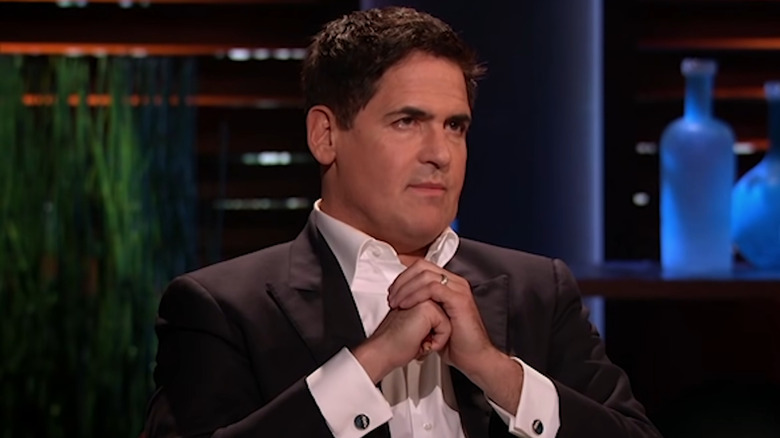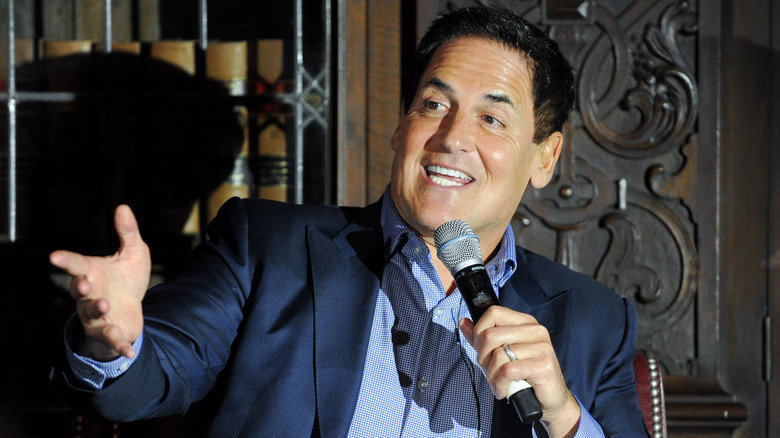Mark Cuban Calls Shark Tank A 'Reinforcement Of The American Dream'
Even setting aside his involvement as an investor on "Shark Tank," Mark Cuban is a busy man. He has been the principal owner of the NBA's Dallas Mavericks since 2000, and he recently took on the pharmaceutical industry, launching a low-cost distributor of generic medications. Cuban has also ventured into the movie industry, producing the 2005 George Clooney film "Good Night and Good Luck."
Despite all of these enterprises pulling him in different directions and a reported net worth of more than $5 billion, Cuban continues to participate in "Shark Tank." In a 2014 interview with D Magazine, Cuban explained he stays on "Shark Tank" because he feels it keeps him connected to the entrepreneurial spirit that helped make the United States great. He explained that the people who pitch their ideas on the show often leave with advice on how to develop their business, making the process valuable even if they don't get the financing they aspire for.
"The show has become a reinforcement of the American dream," Cuban says. "When you see people come out here and see them be successful, you think, 'I can be, too,' and you get advice and get the feedback, and, in aggregate, it's an education. That's important in this day and age, in this economy. I do it, too, because it's philanthropy to me. I want to help companies grow and help people have their dreams come true."
Mark Cuban is Shark Tank's most aggressive investor
Mark Cuban does not do "Shark Tank" simply to stay connected to the American dream. In his time on the show, he has closed more deals than any other shark, investing a total of $20 million with 85 different companies.
His advice for entrepreneurs is to research products that have come before, studying them to see not only what innovations might succeed, but also what ideas have failed. He told ABC News that the first real step in building a business is to develop an initial product and try to sell it, even if it is only to a limited customer base.
"If you have customers, there's a good chance that you have a company," Cuban said. "If you can't sell them, you have your answer."
Despite his fondness for the American Dream, Cuban recommends that potential "Shark Tank" investors drop the complicated personal stories behind their products, implying the tales are often meant to disguise the fact that the products being pitched are nothing special.
"I hate the back story ... because it's usually a way to hide the realities of the business," Cuban said. "Instead of starting with a story about how your grandma inspired you to start your business, get right to the point."

